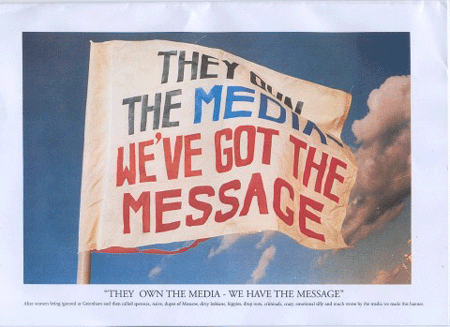Let’s be honest: we have a real and ongoing #geekproblem in how funding is allocated in the alt-tech and #openweb space, and it’s holding us back. The current push for infrastructure is important, but it’s not enough.
Yes, backend infrastructure is vital. You can’t build sustainable alternatives to #dotcons without solid plumbing. Funding projects like mesh networks, free firmware, and decentralised protocols, as #NLnet and others often do, is necessary work. BUT… If no one uses the infrastructure, or if it simply gets absorbed back into corporate platforms, then we’re just building tools for the next round of tech enclosures. That’s the pattern we’ve been trapped in for 20+ years.
Take the example of #ActivityPub. It would have remained a marginal protocol if #Mastodon hadn’t wrapped it in good UX, approachable design, and a culture people actually wanted to be part of. It was this social work, not just the code, that made the #Fediverse grow. That success was accidental, not structural, and we’re now coasting off that one cultural leap forward while backend devs get all the attention and funding. Culture first, code second is the hard truth:
The Fediverse is a culture first, and a standard second.Where is the real funding for building sustainable social tools, interfaces, and communities? Where is the funding for actual alternatives to #dotcons that real people can use? This is one of the things we mean by the #geekproblem, the over-prioritisation of backend infrastructure in a vacuum, without acknowledging the social, political, and cultural layers needed for real systemic change. What’s the Risk? It’s that we end up with:
Endless dev churn.
Great tech no one uses.
A cultural vacuum that’s quickly filled by bad actors or subsumed by corporate rebranding.Sound familiar? So what do we do?
- Balance the Funding. Yes to infrastructure, but also fund user-facing projects, UI/UX work, community engagement, moderation tooling, multilingual outreach, and federated editorial practices. In other words, fund culture-building.
- Support “Soft” Projects That Matter. There’s very little funding for projects like #OMN, #indymediaback, or #openwebgovernancebody because they don’t look like “innovation.” But these are the organic, lived tools that connect radical tech to real social movements.
- Fund social protocols, not just transport protocols.
#4opens, the #PGA hallmarks, and trust-based governance are protocols too, just not the kind that compile into binaries. They help mediate conflict, keep projects focused, and build human networks that last.
Funding only “safe” backend tech guarantees it will either be: Irrelevant, co-opted, or turned into the next closed platform. We have to fund risky, visible, social alternatives if we want a different outcome. None of this is new, I like meany people been banging this drum since the #indymedia days and writing about it for decades. On this path, the #geekproblem isn’t about individuals, it’s a systemic blind spot. Let’s please take the time to balance funding tech AND the culture to finally move toward more humanistic paths.




